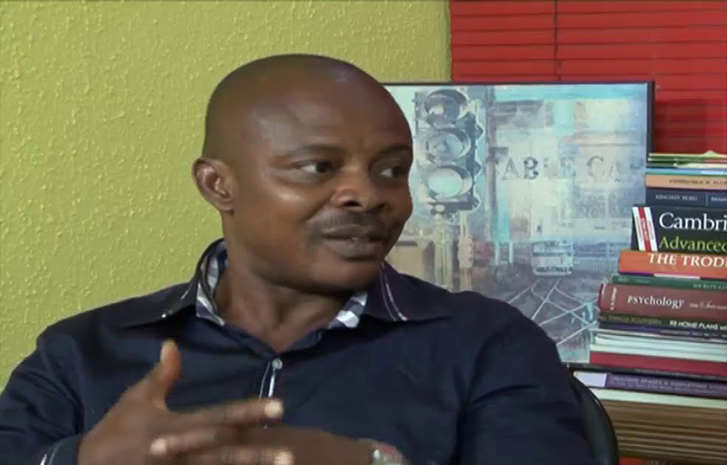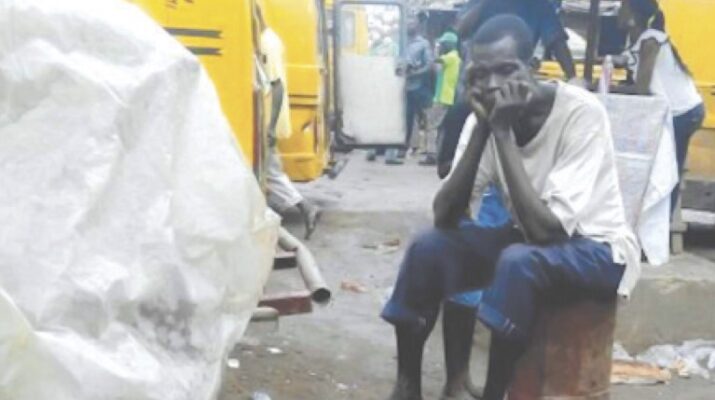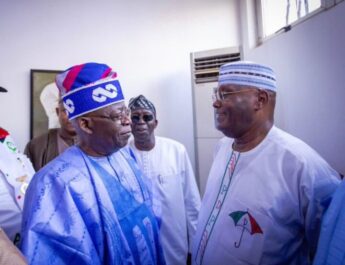Intense hardship continues to pummel over 133 million Nigerians who live below the poverty line under President Bola Tinubu’s economic policies now tagged “Tinubunomics” even as the protagonist, Tinubu, amidst his ostentatious lifestyle urges the poor masses to exercise patience and remain hopeful for a better future under his government’s “Renewed Hope” agenda
By Our Correspondent
In the event the Supreme Court allows President Bola Ahmed Tinubu continue to rule Nigeria by declaring him the authentic winner of the February 25, 2023 presidential election, no matter how many technocrats he will deploy to run his government in the next 46 remaining months, majority of Nigerians, especially the poor across party leanings, will bid him goodbye in a pensive mood, and may not be willing to vote for him a second time.
But if Tinubu’s victory is upturned by the apex court, there may be a wild jubilation across all the geopolitical zones of the country on account of Tinubu’s exit.
Tinubu’s exit from power, whether at the end of his first tenure in 2027 or orchestrated by court judgement before the end of 2023, will be likened to the biblical Psalm which states that “When the righteous prospers the city rejoices but when the wicked perish there are shouts of joy”. On account of President Tinubu’s economic policies within the first month of his rulership, which statistics said have impoverished more than 130 million citizens, many Nigerians have taken the Tinubu administration as an insensitive leadership.
Since Tinubu was announced winner of the election in March by professor Mahmoud Yakubu, the Chairman of the Independent National Electoral Commission (INEC), and sworn in on May 29, what economy analysts refer to as his harrowing economic policies have remained as controversial and contentious as the result of the election that brought him to Aso Rock as the president.
Notably, Tinubu as president broke an unceremonious record since 1999 as the first president in whose first working week faced labour industrial action. Tinubu government had run into collision with the organized labour, the Nigeria Labour Congress (NLC) less than 48 hours after he was sworn in over fuel subsidy removal. Save for a court order, the government was to face the worst organized labour show down that would have smeared the government. But the National Industrial Court came to the rescue. Yet Tinubu government’s first 30 days in office were unprecedentedly tumultuous like none other since 1999.
Within the first month of Tinubu presidency, fuel subsidy was removed, forcing the price of fuel to jump to as high as N560 from N180 it inherited from the Muhammdu Buhari government. Tinubu also instructed the Central Bank of Nigeria (CBN) to end the dollar subsidy on what Buhari government referred to as the “Investors’ and Exporters’ (I&E)” window to end the multiple exchange regime. This policy was to jerk the dollar rate to naira to as high as N800 approximately to one dollar.
In the midst of the ensuing hardship, Tinubu had purposed to jerk up electricity tariff within the first month of his government but met with stiff opposition from economy experts who insisted he was on the verge of strangulating the already traumatized citizens.
Analysts have been blaming Tinubu for implementing his economic policies without putting modalities on ground to cushion the negative effects of the policies. For example, the minimum wage is still N30,000 for both state and Federal Government workers, the dollar rate increase has also affected the price of imported goods as the Nigeria Customs Service (NCS) has jerked up its cargo clearing benchmark to about $500 .
Nigerians now face high inflationary rate which result has increased prices of food items, collapsing Small and Medium Scale Enterprises (SMES), increase in transport fares which are forcing many citizens to be trekking miles every day to work.

There is also the palpable fear of many losing their jobs as the hardship continues because employers will not want to run at a loss because of low patronage.
Barrister Nkoyo Toyo, a former House of Representatives member and former Nigerian ambassador to Ethiopia recently took a swipe at Tinubu’s economic policies when he concluded that “We (Tinubu administration) have taken good life away from the people and given it to corrupt politicians. Subsidy is being demonized, it’s wrong to say subsidy is gone without adequate preparation to cushion its effects “.
Commenting on the subsidy regime, Toyo said subsidy is a policy practiced all over the world through which nations ‘ governments subsidize the prices of essential amenities such as energy and power for their citizens. He argued that the problem with the Nigerian subsidy regime is that of poor management by the custodians of power.
“The problem with subsidy in Nigeria is that of mismanagement. Subsidy is all over the world, and its aim is to help the people. When it is removed, human life and survival are affected negatively because so many businesses are going to fold up.
“Government should begin to think about the implications of this decision. The Federal Government is talking about 100 buses as the palliative, my question is, how many people can 100 buses carry?
In the nearest future we’re going to see much more Job losses, prices of commodities will rise”.
Warning against the proposed increase in electricity tariff, the former ambassador asked, “Where in the world do you leave your energy resources to the private sector? Without production there can be no prosperity, and it’s electricity that drives production. So, if electricity tariffs are being changed every now and then, how can Nigeria be productive?
Meanwhile, Tinubu had on Wednesday, July 12 sent a proposal to the National Assembly (House of Representatives) requesting for an approval of N500 billion to fund palliatives that are aimed at cushioning the negative effects of the Tinubunomics revolution.
The proposal is equally receiving a backlash from citizens especially on the social media as many netizens are asking who will receive the palliatives, and the modalities for ensuring that the money does not end up in the pockets of the implementers.
Again, Tinubu government on the same Thursday got an approval from the Senate to borrow another $800 million from the World Bank for National Social Safety Net Program. The approval followed a letter which Tinubu wrote to the Senate stating in part, “Please note that the Federal Executive Council led by president Muhammadu Buhari approved an additional loan facility to the tune of $800 million to be secured from the World Bank for the National Social Safety Net Program, copy of FEC’s extract attached.
“You may also which to note that the purpose of the facility is to expand coverage of shock responsive safety net support among the poor and vulnerable Nigerians. This will assist them in coping with basic needs”. The Senate on Thursday approve Tinubu’s request. Tinubu government said the money will be paid to 12 million poor Nigerian households who will receive the sum of N8,000 per month for six months.




